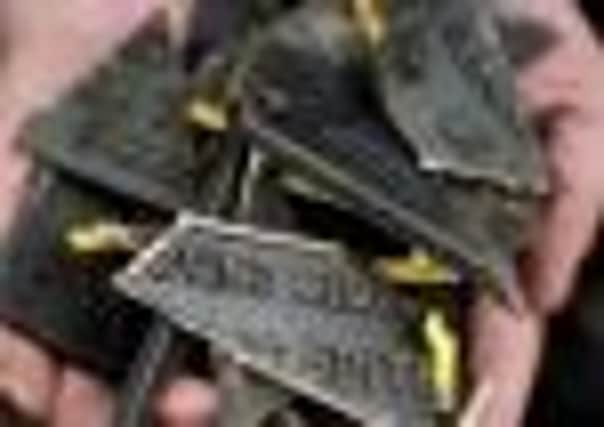Clampdown on metal thieves could end up on scrapheap


Metal theft has blighted the country for too long, driven by the high value of metal in recent years and the ease with which it can be sold on to unscrupulous traders. As demand for recycled metals remains high, the value is unlikely to fall. Yet to tackle the problem the rewards that make metal theft such an attractive enterprise for thieves must be removed, and the illegal operators that act as outlets for stolen metal closed down.
In January, the British Metals Recycling Association (BMRA) launched Operation Tornado. In conjunction with the police, the pilot programme in North East created an audit trail for all transactions, making it easier to trace sellers of stolen metal
Advertisement
Hide AdAdvertisement
Hide AdDesigned as a blueprint for future regulation, alongside rigorous enforcement of illegal sites, it brought a dramatic decrease in metal theft. The scheme was quickly rolled out to West Yorkshire and other parts of the country through the first half of the year.
Meanwhile, increased awareness of metal theft persuaded the Government to amend the Legal Aid, Sentencing and Punishment of Offenders Bill to tackle the issue. The result is that from the beginning of December, Operation Tornado’s principles of improving the audit trail to trace sellers of scrap metal will become law. It will also be an offence to purchase scrap metal for cash, the idea being that the rewards associated with selling stolen metal are removed.
However, as they stand, the new rules exempt some businesses, such as vehicle dismantlers and itinerant traders, from the cash ban. Moreover banning cash cannot reduce metal theft whilst there are hundreds of illegal operators who will continue to offer cash payments.
According to the latest Home Office figures there are still 1,000 metal thefts a week which, it estimates, costs the country £220m a year. The Government, the police and industry have continued to work together to fight for tougher enforcement and improved regulation of metals recycling, with the primary aim of closing down any dealers who act as outlets for stolen metal.
Advertisement
Hide AdAdvertisement
Hide AdThese reforms, which include requiring dealers to be licenced, giving police stronger power to raid and close scrap yards and requiring anyone selling scrap to provide proof of identity, will be debated in Parliament today.
The Scrap Metal Dealers Bill puts in place the reform and powers needed to back up the ban on buying scrap metal for cash and removes loopholes in the law and it has cross-party support.
Without rigorous licensing and enforcement, there are hundreds of small businesses and householders across Yorkshire who will continue to sell scrap metal every day to recyclers who will continue to pay cash, not knowing whether they are legitimate or not
Everyone who has been impacted by the rash of metal theft in recent years agrees that a rapidly-implemented reform of the recycling industry through the Scrap Metal Dealers Bill is the right course of action.
Advertisement
Hide AdAdvertisement
Hide AdHowever, the bill must be voted for unanimously in Parliament to go through. And Shipley MP Philip Davies has stated his intention to de-rail the process, claiming that these reforms “would not only make no difference to the problem, but be likely to make it worse”.
He is misguided if he believes that tougher sentences for metal theft crimes alone will solve the problem if outlets for stolen metal can continue to trade. While tougher penalties for thieves are a necessary deterrent, they will be wholly ineffective without a robust regulatory system underpinning the entire sector. If Davies is serious about tackling metal theft, he should allow this bill to pass as part of the range of measures needed to stop metal thieves.
The police, the church, rail operators, utility companies and the scrap metal industry all support this long overdue bill to strengthen the 1964 Scrap Metal Dealers Act and introduce penalties for non-compliance with the licensing regime.
The metals recycling industry has recognised the problem and has taken responsibility by advising on and backing this much needed and urgent reform of the industry. The Scrap Metal Dealers Bill simply seeks to modernise and strengthen existing laws to make it easier to identify anyone trying to sell stolen metal and to pinpoint and shut down illegal operators.
Advertisement
Hide AdAdvertisement
Hide AdIf Philip Davies opposes the bill when it is debated today, he effectively signs a charter for metal thieves – leading to an increase in crime across the country.
Ian Hetherington is director general of the British Metals Recycling Association.